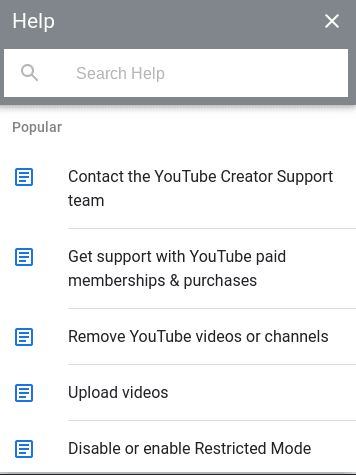Content Marketing for Growing Existing Customer Accounts
When people consider the importance of content marketing, they often point to its role in nurturing prospective customers towards conversion. They sometimes neglect the importance of this strategy in maintaining relationships with existing customers. That explains why although 81 percent of businesses say they have strategies for nurturing prospects among the early stages of the buyer’s journey, only 29 percent of B2B customers report that being actively engaged with the brands they buy from.
Understanding the importance of content marketing in building and maintaining these relationships, however, can have a powerful impact on the business’s bottom line.
Nurture your existing relationships
Experience greater business growth
The importance of nurturing existing customers lies in their ability to propel robust business growth. Customers you’ve already sold to are more open to repeat purchases. Organisations have a 60-70 percent chance of converting existing customers, versus a 5-20 percent chance for a new customer. That explains why finding new customers can cost a business five times more than selling to customers who have already purchased from you.
Brands that take the time to invest in customer delight and loyalty also find that simple increases in their customer retention rate can have dramatic impacts on the overall success of their organisation. Just a five percent increase in customer retention can increase revenue by 25 to 95 percent. You can clearly grasp the influence of these returning customers when you consider that in organisations in Europe, 38 percent of revenue is driven by returning and repeat customers. These customers, however, make up only 10 percent of their site visitors.
Sign up for our newsletter
Get the latest news and ideas from 1827 Marketing sent directly to your in-box.
You will receive an email from us every couple of months, and you can opt out at any time.
Returning customers, in other words, are not only easier for businesses to convert, but they also require less spending and drive more significant business growth. Investing in customer retention strategies helps companies see a higher ROI for their marketing strategy.
Content designed for existing customers revolves around deepening the customer-client relationship .It helps those who have made a purchase get the maximum value out of their investment. The material demonstrates the importance your brand places on existing customers. You get the opportunity to provide a superior customer experience, proving that you understand and can anticipate customer needs.
This level of customer service increases customer delight and exceeds their expectations, in turn boosting the customer lifetime value, reducing customer churn, and resulting in returning customers who spend an average of 2/3 more than new customers .
Stay on Your customers’ minds
Creating content to engage existing customers ensures that you are top of their minds when a new project arises. If they already regularly engage with you, considering your organisation for the new project happens naturally.
Make sure customers know about your full portfolio
You also get the chance to remind customers what else you can do for them. Clients sometimes tend to pigeonhole their suppliers based on their initial purchase. Although you most likely told them about your full list of services during your opening sales conversations, they may not recall the services that they did not need at the time.
With a diverse content strategy, however, you can use this continued customer engagement to ensure that existing customers receive regular exposure to case studies or newsletters that highlight the other powerful services you provide.

How do I use content marketing to help with customer retention?
To build existing customer-focused content into your strategy, you need to understand what customers want to see during this phase of the buyer’s journey.
They have already made a purchase, which means that they are confident that your business can help them to solve their problems. Now, however, they want reassurance that they made the right decision and to get the most value possible out of the products and services they have bought. They also want to make sure that they have not misplaced their trust. Encouraging customers to buy again from you in the future revolves around demonstrating this value and helping them maximise their ROI.
Anticipate customer questions and answer them
Customers always have questions about products and services. Once they have invested in a product or service, they want to make sure they use it correctly and maximise its potential.
Your sales teams and customer support teams most likely receive a suite of the same, or very similar, questions from customers on the verge of purchasing and who have just purchased. Work with these teams to define these frequently asked questions and create content to answer them.
Your customer will feel that you genuinely care about their experience with your organisation as you demonstrate that you can anticipate their needs. Customers can digest the content before the questions even arise for them, saving them the stress of not knowing the answer.
Look at content marketing examples, such as the FAQ page of YouTube. The social media site makes it easy for users to find the answers to common questions in a clear and accessible format.
Your marketing content needs to be clear and to the point.

Help the support team deal with potential sticking points
As you work with existing customers along with the customer support team, you will also learn about common sticking points that customers encounter. These sticking points might originate with you or the customer, but their common trait is their ability to detract from the customer experience. They cause friction and stress, damaging the customer’s ability to get the most out of their purchase.
Fortunately, brands who anticipate these issues, solve them promptly, and demonstrate themselves to be responsive to customer needs will still provide customers with a fantastic user experience. When customers report problems, they want them taken care of immediately – and buyers who feel as though organisations have addressed issues promptly will, on average, end up more loyal to the organisation than they were before the incident.
Work with the customer support team to learn about potential issues and create content that can help customers move past them quickly and easily.
Help customers with an account-based approach
You can also use your content marketing strategy to create an account-based support approach for your customers. Remember that customers want to see a strong ROI from their investment, particularly if they are going to buy from you again. Clients have to demonstrate the value of their purchasing decisions to stakeholders and leaders throughout their organisation.
You can provide high-level support for these customers by helping them understand what is happening in the project in a way that makes it relevant for different stakeholders. Depending upon your industry, you can help clients explore experience, finance, employee motivation, and related angles. This content can help frame critical messaging for your client, so they can clearly articulate the value you provide. To do this successfully, however, you need to have a good understanding of the perspectives of the different stakeholders in the business.
What sort of content should I use?
Many different types of content fit well with an existing customer-focused content marketing strategy. You will want to carefully consider which ones fit best with your unique business needs and what your customers want to see.
Webinars
Webinars can present demonstrations of your products or services and help customers see how to maximise their value. They can also help keep customers abreast of the latest changes within the industry, and how their purchase will help them remain on top of these developments.
White papers
White papers can provide customers with valuable insights into the industry. They can explore common challenges found within their sector and how your organisation’s product or service can help customers thrive. Not only will this help customers see how to navigate challenges, but they also help to cast the brand as a leader in the field.
Research
Research provides an excellent means of building a reputation as an industry leader. It will help customers feel as though they have purchased from a trustworthy source, someone who knows the industry best.
Case studies
Case studies can help brands see how other customers have successfully used the product or service and their accomplishments. They can gain insights and new ideas about how to achieve a higher ROI.
Support tutorials
Support tutorials can address the everyday struggles of customers and show them how to use the product or service they just purchased. It can help them understand the different features and benefits they can take advantage of and how to maximise their efficiency.
Videos
Videos make it easy to provide product demonstrations and present the full capacity of the product or service. Live voice narration of the video helps to add a personal touch as the customer learns more about how to get the most out of their product.
How-tos
How-tos remain compelling throughout the buyer’s journey. They help customers answer critical questions about their pain points. For existing customers, they also demonstrate how to use their purchase to address their needs efficiently.

Strategies for keeping customers engaged with content
Now that you have started to create content that your existing customers will appreciate let’s explore some means of keeping them engaged with the material.
Use marketing automation to help promote the material
Marketing automation can help you get the right content to the right customers. You can send out regular newsletters with content that will interest existing customers. You can also use automation to promote case studies, recent or relevant projects, or research that will interest particular segments of your clientele. For example, you can segment your audience based on previous purchases, how they use your product, their industry, or other relevant demographics that help you better understand their needs and align them with the content you produce.
You can also segment based on your customers’ current levels of engagement. Marketing automation will allow you to reach out to customers currently actively engaged with your brand with new potential avenues of collaboration. Those who have fallen out of touch can receive material designed to warm them back up and nurture the relationship.
Share recognition
When you collaborate with clients on projects, you also want to share the credit to help build bonds. If you get the opportunity to speak at a conference about a project you’ve worked on, invite the customer to share the platform. Work towards awards together, too. Clients like these opportunities because it helps them boost their profile, and it will also highlight how well your company performs for customers.
These opportunities for collaboration will also give you a lot of scope for fresh content. The ability to highlight these successes with existing customers can then be used to create top-of-funnel material for new prospective customers, bringing the buyer’s journey in full circle.
Do not neglect the importance of face-to-face interaction
As you build content for your existing customers, make sure that you do not rely solely on marketing automation to nurture the relationship. Nothing beats the human touch. Face-to-face interactions ensure that customers are happy, well-cared for, and aware of all the products and services you offer. The right content, however, keeps customers engaged and primed to join the conversation.
Content marketing presents organisations with fantastic opportunities to demonstrate their expertise and nurture clients. They should not neglect, however, the importance of also producing content for their existing customers. Nurturing these customers can grow your business and improve your bottom line.
Find out how 1827 Marketing’s content strategists and marketing automation platform can combine to help you diversify your content strategy and cater to your existing customers.
Have a B2B marketing project in mind?
We might be just what you’re looking for






